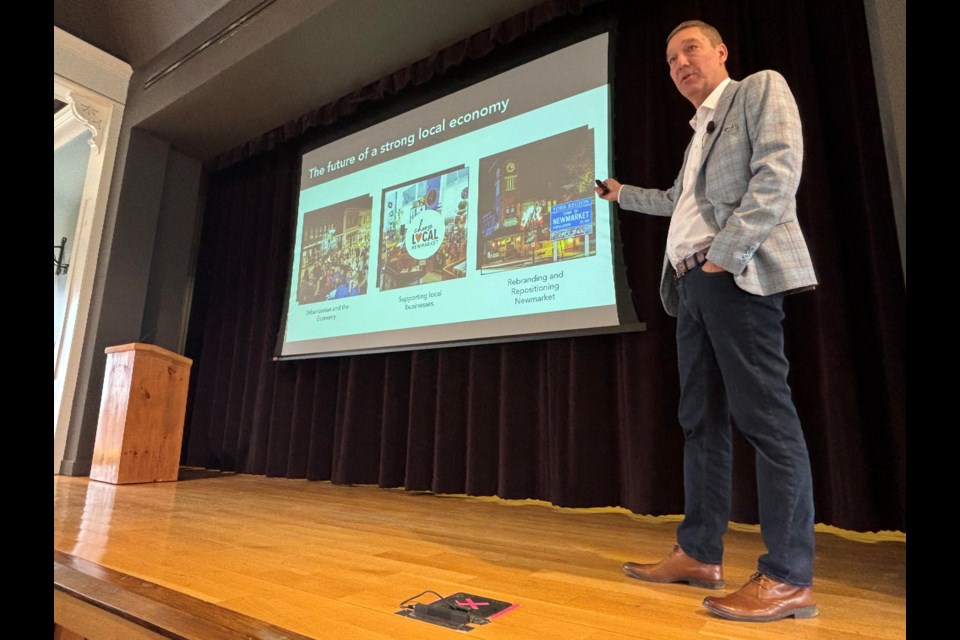Newmarket is thriving, but it needs an array of housing types and critical infrastructure to continue to attract and retain employees, Newmarket Mayor John Taylor said at his annual chamber of commerce address today.
"This is a special place to live, there is a strong community spirit, we take care of everyone in this community, and we have a strong local economy," said Taylor to business leaders and elected officials at the Central York Chamber of Commerce event at the Old Town Hall March 26.
New businesses have the opportunity to grow, hire more people, provide for the local economy, and drive productivity, he said, pointing to two examples. The three TRICAP industrial buildings on Stackhouse Road are the biggest, single active build in Newmarket in 20 years, and Multimatic Automotive Manufacturing has significant growth planned for 2023 to 2028.
While Main Street offers tourism opportunities, Taylor said jobs are created there. He looks forward to the opening of the Postmark Hotel and Farmers’ Market opening for the season, and highlighted the openings of Ghost Taco, Locale, and Goodman Fine Foods.
Despite the growth in job opportunities and businesses, the town still faces challenges in attracting and retaining employees, he said.
The town must consider different types of housing options for people planning to downsize, first-time home buyers, residents who need affordable rentals, and those who need a shelter.
“We need employees,” said Taylor. “They need housing to be here and, we need them here for us to succeed. Housing is critical to the local economy.”
He said the Shining Hill development will produce between 2,000 to 3,000 units in about 15 to 20 years, Redwood Properties plans to begin construction on rental houses, while work has begun on the Kingsley Square condominiums.
Taylor said critical infrastructure, such as wastewater and sewage is needed to meet the provincial government’s mandate for 12,000 new units, as well as the town's own mandate to achieve growth of 6,400 units.
“That is a widely audacious goal at 6,400,” said Taylor. “We’re counting on part of the sewage solution being completed and bringing some sewage capacity online, along with the current capacity we have, along with some that have been allocated that are just starting to build.
"To get to that number, it would take everything to work perfectly and, it would take the market because we don’t build homes and builders can’t build homes unless the market is exuberant.”
The town is working with developers to try to bring housing supply and options at different price points. Taylor said the high cost of housing, however, is consuming investment dollars at a local level.
“When housing prices started to truly escalate rapidly in the last decade and more money from businesses, entrepreneurs and individuals is poured into paying rent, buying a house or investing in a business or real estate, less of it was available to go into productivity-related investments,” said Taylor.




